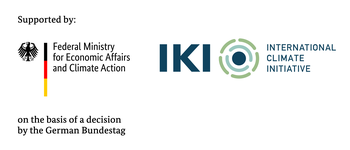The purpose of the TWG Policy is to bring together interested COPA Members and invited external experts to jointly work on identifying and developing policy interventions suitable for GHG mitigation measures in the ODS and HFC banks sector. The working group defines its own specific goals, its work plan, and implements activities together. Meetings take place on a regular basis. Results from the TWG are reported and presented on demand and annually to the COPA Plenary. If you are a COPA member and want to contribute to the Policy TWG through a session, presentation or have a suggestion for a topic, publication or a tips about new research, please reach out to the coordinator via mail. Friday, 19 September 2025, the Working Group on Policy Frameworks invited members to explore and exchange on the policy instrument Extended Producer Responsibility (EPR). The COPA Member IN Consult presented their work conducted on EPR in Pakistan. After the presentation, the participants had the opportunity to put forward questions, suggestions, concerns, and share experiences. View the session slides here! (click link) The work in the WG is guided by the below objectives and questions: During 2024, the working group activities for advancing global and national policies towards sustainable ODS/HFC banks management and real emissions reductions, focused on bringing forward position papers from COPA on a variety of cross-cutting themes. Both the Steering Committee and the members took the driving seat for the development and approval of two COPA position papers on HFO and Safeguards. In alignment with the policy working group, these positions by the COPA member community will help drive the development of such policies on a larger stage as well. In the new year, the policy activities of the working group will be decided in an interactive exchange with the members and the coordinators. Members are welcome to send a mail to the Secretariat and the TWG coordinators if they have ideas or suggestions. In 2023 four meetings took place: 1. An online expert talk was organized by the TWG Policy to exchange with a representative from Australia or Japan or Europe (for Waste Electrical and Electronic Equipment), or Canada to share and discuss their experiences with EPR. A two-pager on EPR in different countries will be prepared and shared in advance to the expert talk 2. As a follow-up, similar expert talks might follow with other country experiences to deepen the knowledge exchange and highlight different aspects such as timing, effectiveness, etc. 3. In addition, a virtual workshop on EPR and the link to import / export regulations was organized as a deep dive for TWG Policy members who actively want to move forward here. 4. Carbon markets, as well as including the ODS and HFC banks sector in NDCs and potentially generating ITMOs was worked upon. The work also provided inputs for the side event hosted by COPA at COP28. The working group is coordinated by GIZ.
Alliance members across private and public sectors come together in thematic working groups (TWG) to jointly work on holistic solutions needed to reduce ODS and HFC banks. Find out more about our TWG:
For an effective management of refrigerants and foams at end-of-life, suitable policy measures are required like venting bans or mandatory recovery.
Working towards the best technical solutions for ODS and HFC recovery,
Developing financial mechanisms for sustainable GHG mitigation measures in ODS and HFC banks.
Putting theory into practice and demonstrating how sustainable refrigerant management can be implemented.About the TWG for Policy Framework
Work in 2025
Overview of the work in 2024
Overview of the Work in 2023
CONTACTS
Ellen Michel, GIZ
ellen.michel@giz.de
OUR WORKING GROUPS
Policy
Framework
Technology
Solutions
reclamation and destruction.
Financing
Mechanism
Implementation
Models
